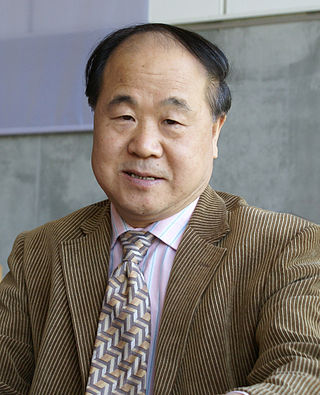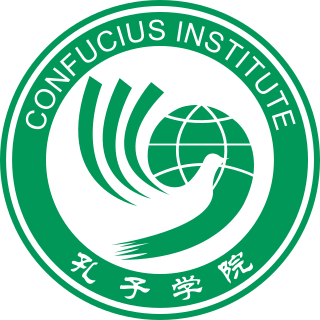
This article on the demographics of Mongolia include population density, ethnicity, education level, health of the populace, economic status, religious affiliations, and other aspects of the population.

Queer is an umbrella term for people who are not heterosexual or are not cisgender. Originally meaning 'strange' or 'peculiar', queer came to be used pejoratively against those with same-sex desires or relationships in the late 19th century. Beginning in the late 1980s, queer activists, such as the members of Queer Nation, began to reclaim the word as a deliberately provocative and politically radical alternative to the more assimilationist branches of the LGBT community.

New Youth was a Chinese literary magazine founded by Chen Duxiu and published between 1915 and 1926. It strongly influenced both the New Culture Movement and the later May Fourth Movement.
The Wall Street Journal is an American business and economic-focused international daily newspaper based in New York City. The Journal is published six days a week by Dow Jones & Company, a division of News Corp. The newspaper is published in broadsheet format and online. The Journal has been printed continuously since its inception on July 8, 1889, and is regarded as a newspaper of record, particularly in terms of business and financial news. The newspaper has won 39 Pulitzer Prizes, the most recent in 2023.

Esquire is an American men's magazine. Currently published in the United States by Hearst Communications, it also has more than 20 international editions.
Traditional Chinese characters are one of several standard sets of characters used to write Chinese languages. In Taiwan, the set of traditional characters is regulated by Taiwan's Ministry of Education, standardized in the Standard Form of National Characters. These forms were predominant in written Chinese until the middle of the 20th century, when various countries that use Chinese characters began standardizing simplified sets of characters, often with characters that existed before as well-known variants of the predominant forms.

Weekly Shōnen Jump is a weekly shōnen manga anthology published in Japan by Shueisha under the Jump line of magazines. The manga series within the magazine consist of many action scenes and a fair amount of comedy. Chapters of the series that run in Weekly Shōnen Jump are collected and published in tankōbon volumes under the Jump Comics imprint every two to three months. It is one of the longest-running manga magazines, with the first issue being released with a cover date of August 1, 1968.
The New Culture Movement was a progressivist movement in China in the 1910s and 1920s that criticized classical Chinese ideas and promoted a new Chinese culture based upon progressive, modern ideals like elections and science. Arising out of disillusionment with traditional Chinese culture following the failure of the Republic of China to address China's problems, it featured scholars such as Chen Duxiu, Cai Yuanpei, Chen Hengzhe, Li Dazhao, Lu Xun, Zhou Zuoren, He Dong, Qian Xuantong, Liu Bannong, Bing Xin, and Hu Shih, many classically educated, who led a revolt against Confucianism. The movement was launched by the writers of New Youth magazine, where these intellectuals promoted a new society based on unconstrained individuals rather than the traditional Confucian system. In 1917, Mr. Hu Shih put forward the famous “Eight Principle”, that is, abandon the ancient traditional writing method and use vernacular.
K-pop, short for Korean popular music, is a form of popular music originating in South Korea as part of South Korean culture. It includes styles and genres from around the world, such as pop, hip hop, R&B, rock, jazz, gospel, reggae, electronic dance, folk, country, disco, and classical on top of its traditional Korean music roots. The term "K-pop" became popular in the 2000s, especially in the international context. The Korean term for domestic pop music is gayo, which is still widely used within South Korea. While "K-pop" can refer to all popular music or pop music from South Korea, it is colloquially often used in a narrower sense for any Korean music and artists associated with the entertainment and idol industry in the country, regardless of the genre.

Guan Moye, better known by the pen name Mo Yan, is a Chinese novelist and short story writer. Donald Morrison of U.S. news magazine TIME referred to him as "one of the most famous, oft-banned and widely pirated of all Chinese writers", and Jim Leach called him the Chinese answer to Franz Kafka or Joseph Heller. In 2012, Mo was awarded the Nobel Prize in Literature for his work as a writer "who with hallucinatory realism merges folk tales, history and the contemporary".
Free Tibet (FT) is a non-profit, non-governmental organisation, founded in 1987 and based in London, England. According to their mission statement, Free Tibet advocates for "a free Tibet in which Tibetans are able to determine their own future and the human rights of all are respected."

Confucius Institutes are public educational and cultural promotion programs funded and arranged currently by the Chinese International Education Foundation, a government-organized non-governmental organization (GONGO) under the Ministry of Education of the People's Republic of China. The Confucius Institute program was formerly under Hanban, an organization affiliated with the Chinese government. The stated aim of the program is to promote Chinese language and culture, support local Chinese teaching internationally, and facilitate cultural exchanges.

The Manila Bulletin is the Philippines' largest English language broadsheet newspaper by circulation. Founded in 1900, it is the second oldest extant newspaper published in the Philippines and the second oldest extant English newspaper in the Far East. It bills itself as "The Nation's Leading Newspaper", which is its official slogan.
SSAT Limited is a UK-based, independent educational membership organisation working with primary, secondary, special and free schools, academies and UTCs. It provides support and training in four main areas: teaching and learning, curriculum, networking, and leadership development.

WSJ Magazine is a luxury glossy news and lifestyle monthly magazine published by The Wall Street Journal. It features luxury consumer products advertisements and is distributed to subscribers in large United States markets. Its coverage spans art, fashion, entertainment, design, food, architecture, travel and more. As of October 2012, Kristina O'Neill was Editor in Chief. Launched as a quarterly in 2008, the magazine grew to 12 issues a year for 2014. It was originally intended to be a monthly magazine named Pursuits.
Popular music is music with wide appeal that is typically distributed to large audiences through the music industry. These forms and styles can be enjoyed and performed by people with little or no musical training. It stands in contrast to both art music and traditional or "folk" music. Art music was historically disseminated through the performances of written music, although since the beginning of the recording industry, it is also disseminated through recordings. Traditional music forms such as early blues songs or hymns were passed along orally, or to smaller, local audiences.

The Centre for Language Education and Cooperation is an organization under the Ministry of Education of the People's Republic of China tasked with "providing Chinese language and cultural teaching resources and services worldwide". It is commonly referred to as the Hanban, the colloquial abbreviation for the Office of Chinese Language Council International ; it is also known as Confucius Institute Headquarters.
The Confucius Institute (CI) program, which began establishing centers for Chinese language instruction in 2004, has been the subject of criticisms, concerns, and controversies during its international expansion.

Xu Lin is a Chinese vice-minister-level official serving on the State Council. She has held the post of Chief Executive and Director of the Confucius Institutes worldwide since 2004. She is Director General of the Hanban, or Chinese National Office for Teaching Chinese as a Foreign Language.
Chinese Voice is a Cantonese, Mandarin and English language radio network based in Auckland, New Zealand. It is a wholly owned subsidiary of Best News Entertainment, an Asian language television, print and radio company, and consists of three station set up between 2003 and 2010. It produces more than 80 hours of local content each week, including live talkback on news stories, migrant issues, political developments and dealing with New Zealand Government agencies. The stations also broadcast imported talk and music programmes from China and Hong Kong.











